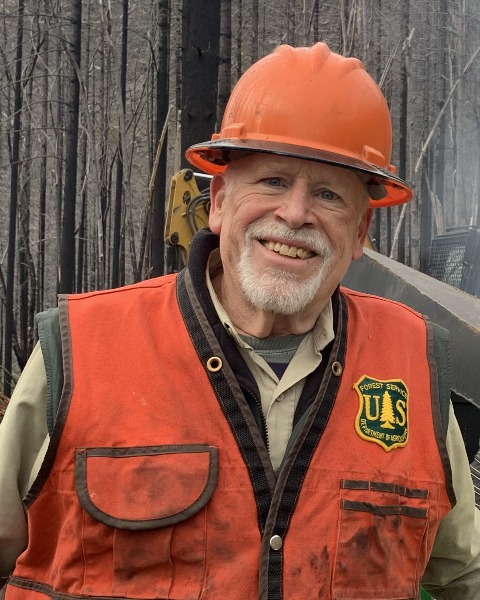Poster
Bioenergy, Climate Change, and Carbon
Converting Forest Slash to Biochar: Waste Material to Value-Added Product
Thursday, September 19, 2024
9:30 AM - 10:30 AM MST
Location: McKee Hall

Daniel W. McCollum, n/a
Research Economist
USDA Forest Service Rocky Mountain Research Station, United States
Poster Presenter(s)
Biochar is an ecologically friendly and value-added alternative to slash pile burning that can make forest treatments more economically feasible and likely to get done. What contributes to the value of biochar? Can it be leveraged? Why is biochar a valuable addition to the forester’s toolbox?
Learning Objectives:
- Realize that burning forest treatment residual material or slash onsite has deleterious effects on the environment including smoke, air pollution, greenhouse gas emissions, and damage to forest soils. Pile burning is not a good tool to be used as the default mechanism for disposing of slash piles.
- Recognize that biochar is an ecologically friendly and value-added alternative to burning slash piles in the field. It provides market goods that can be used as inputs to productive processes. It also provides nonmarket goods that benefit community and social well-being including healthy soils, carbon sequestration, and other ecosystem services.
- Understand that because it attracts and holds water and nutrients, increases cation exchange capacity, enhances sorption of organic compounds, and makes the soil more porous, biochar is a valuable soil amendment. Such properties enhance soil productivity and facilitate plant growth to reduce erosion and restore compacted, oxidized, and degraded soils. Biochar also binds and holds toxic materials like those discharged from old mines, keeping them out of streams and groundwater. Finally, biochar is a stable form of carbon that is highly resistant to decay and remains in the soil for hundreds or thousands of years, thus sequestering carbon.

